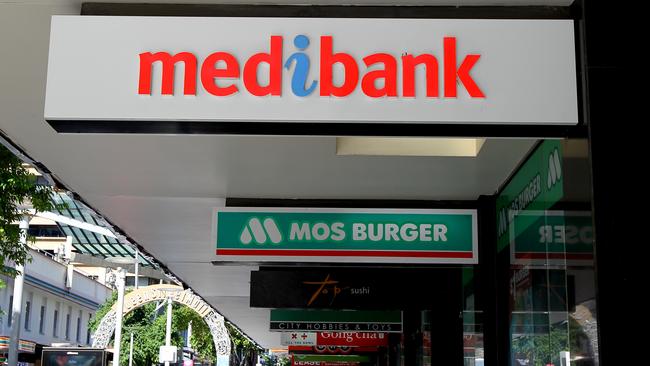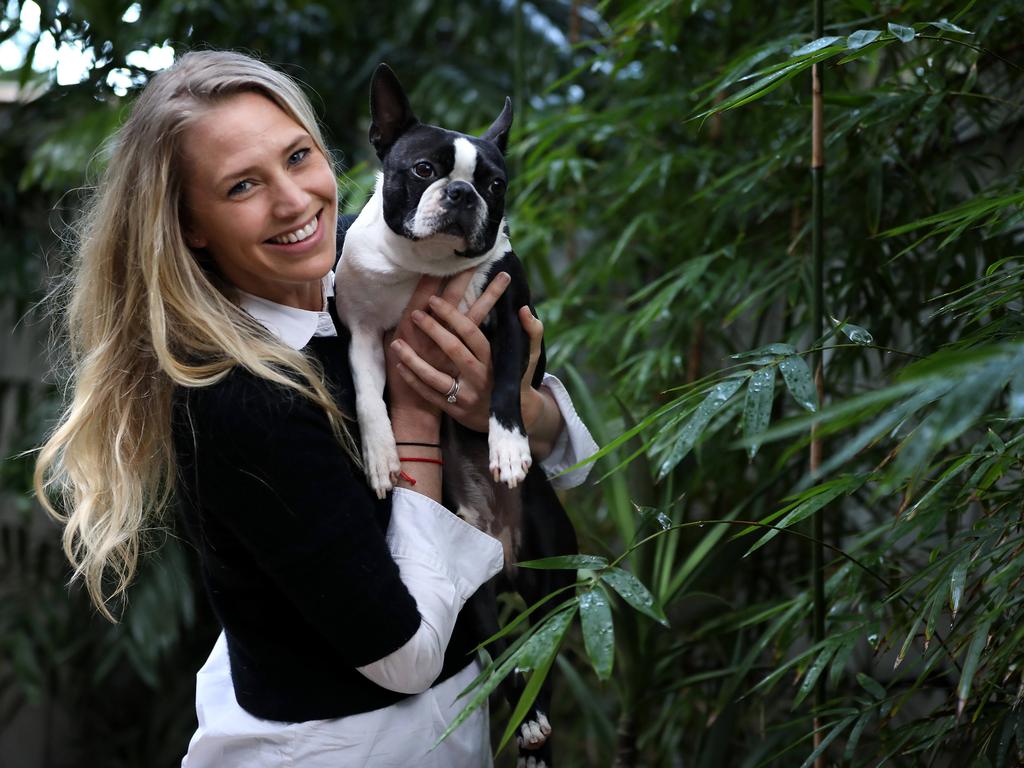
The average return to extras-only account holders will be $25 and for full service members an average of $60, so with annual premiums running into their thousands of dollars it’s a step in the right direction rather than a major return.
Koczkar has been at Medibank for over seven years so he knows the game and understands in the present climate it’s better to be offering discounts than ramping up fees.
When Covid-19 first hit, the freeze on elective surgery was seen as a boon to the health insurance industry which funds much of the sector, but as pandemic rolled out the gains were less than thought.
That said, Covid-19 has been a net positive for the private health sector because it has opened consumers’ eyes to the fact they are not bulletproof and health issues make no distinction based on age.
The industry is now growing at annual rates of 2.5 per cent — some four times its recent track record — and Medibank has grown above system, lifting its customer ratings and market share to above 28 per cent.
Koczkar used to run the consumer network so he understands better than most the need to both listen to customers and execute on their desires.
He has recently reshaped management, with his seven direct reports all long-time executives, including Andrew Wilson who takes on the key role of health services.
Wilson was the other heir apparent to former boss Craig Drummond, so it makes good sense to put him in charge of the brand’s expansion.
The former strategy chief will be charged with extending the insurer directly into medical practices, with the purchase of a 33.4 per cent stake in GP clinic firm Myhealth and a 49 per cent stake in the East Sydney Private Hospital.
Both deals come under Wilson’s strategy and the insurer will shortly map out its long-term goals in terms of ownership.
The two new names on the executive leadership team are Milosh Milisavljevic and Rob Deering, who will handle consumer products and distribution respectively.
There are 15,000 GPs in Australia and 500-plus private hospitals, so just how scalable the push into direct ownership will be remains to be seen.
The insurer is sensitive to the charge that is taking control of the relationship between doctor and patient, instead saying it is a strategic relationship to help reform.
The clinical relationship between doctor and patient remains paramount.
Medibank data will be open to its partners and the insurer sees its role more as opening the door to reform in the industry.
This includes more preventive health care, shorter hospital stays, no-gap hospital service and strategies to avoid hospital. It’s a strategy in which Medibank leads the industry in Australia so is a differentiating factor for members.
Covid-19 has opened some new doors in Australia, like the apparently permanent telehealth reforms which support the Medibank strategy.
Investors are maintaining an open mind, with the stock price tracking the market since hitting recent lows last October against the 25 per cent outperformance from rival NIB.
The battle for North Melbourne tragic Koczkar has only just begun.
New chapter
Andrew Leyden’s Lazard Australia begins trading from Thursday, marking a change for the long-running investment bank boutique which dates back to CS First Boston days when it made its name in the mid-1990s Victorian energy privatisations.
The firm became Carnegie Wylie in 2000 before being sold to Lazard in 2007 and the US firm now maintains its strategic alliance.
But the 20-plus local staff have effectively acquired the practice.
It comes amid some more high-profile changes in the industry, including US house Jefferies opening its door in Australia in 2018, the Jarden Australia and the Magellan and Barclays-backed Barrenjoey.
The latter two follow the Macquarie Bank move to establish local management, freeing the staff from offshore management control and payment in poorly performing offshore scrip.
The Lazard Australia focus will remain on privatisations, energy infrastructure and healthcare, among other deals.
Links with offshore deal flow are considered crucial to the Australian practitioners, of course, along with domestic talent.
Competition concern
Former NSW premier Mike Baird collected $6.9bn in proceeds from his 2013 port privatisations but the way he did it has irrevocably damaged the state for the next 50 years. The ACCC lost another action against the port sales in the Federal Court on Tuesday, this one on behalf of the Port of Newcastle, which wants to establish a competitive container terminal.
When China Merchants, a Chinese government entity, acquired the terminal in 2014 for $1.8bn, it did so knowing there was a condition preventing it gaining easy access to the container market.
This was imposed to protect the Port Botany and Port Kembla monopoly on the trade, for which they paid $5.1bn in 2013.
Then premier Mike Baird thought he was clever to maximise the terms by creating monopoly rights but in doing so he has damned NSW consumers and companies with higher monopoly rent charges.
The ACCC challenge to the deal was thrown out on Tuesday.
Ironically enough, the ACCC is also banging the drum, bleating about the Port of Newcastle — which immediately on buying the asset doubles its internal valuation, allowing it to double port access charges, damaging coal exports.
The Port of Newcastle and the ACCC-backed Glencore have been locked in litigation ever since and the Port now has the matter up before the High Court for the second time.
Treasurer Josh Frydenberg only on Monday was talking up the benefits of productivity improvements for the economy, but has repeatedly backed the Port of Newcastle in its fight against independent arbitration by the ACCC. In short, the saga is a snafu of major proportions thanks to the decisions seven years ago by a short-term-thinking greedy premier.
In a statement on Tuesday the ACCC said: “This judgment provides an enormous hurdle for the Port of Newcastle to develop a container terminal to compete with Port Botany and Port Kembla, because of financial consequences arising from the Deeds.”
ACCC chair Rod Sims added: “Less competition usually results in higher charges for businesses and consumers.
“We alleged that making these agreements containing provisions which would effectively compensate Port Kembla and Port Botany if the Port of Newcastle developed a container terminal, was anti-competitive and illegal,” he said.
“Absent new entry, NSW Ports will have an effective monopoly in moving containers in NSW for 50 years.
“We took this action to remove a barrier to competition in an important market, the supply of port services, which has a significant impact on the cost of goods paid by Australian consumers. Such barriers damage Australia’s productivity performance,” Mr Sims said.








In his six weeks in power Medibank’s David Koczkar has moved quickly to put his stamp on the shop, with a new management team and on Tuesday a public relations-friendly $105m capital return to policyholders, to bring the total so far to $300m.